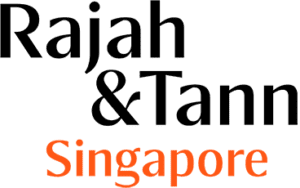Eleven national cybersecurity and digital authorities, including the Cyber Security Agency of Singapore (“CSA“), announced the inaugural convening of the Global Cybersecurity Labelling Initiative (“GCLI“) on 23 October 2025. GCLI issued a joint statement committing members to pursuing a harmonised, internationally coordinated approach to cybersecurity requirements and labelling for Internet of Things (“IoT“) devices to better protect consumers, support innovation, and strengthen digital resilience across borders.
GCLI aims to serve as a cooperation platform for global authorities to coordinate beyond domestic efforts, with the goal of developing a common approach to IoT security labelling and requirements. The forum intends to harness existing global momentum by consolidating lessons learned and aligning practices where feasible.
Members aim to:
- align around clear, harmonised baseline security requirements for IoT products that raise cybersecurity hygiene and resilience against evolving threats;
- streamline compliance to reduce costs and complexity for manufacturers while enhancing consumer protection and trust;
- share best practices and leverage experiences from national initiatives within a multilateral cooperation forum to encourage innovation and market incentives for stronger device security; and
- respect national competencies and legal frameworks while seeking common ground that enables cross-border consistency.
Click on the following link for more information:
- CSA Press Release titled “Joint Statement on the Global Cybersecurity Labelling Initiative” (available on the CSA website at csa.gov.sg)
Disclaimer
Rajah & Tann Asia is a network of member firms with local legal practices in Cambodia, Indonesia, Lao PDR, Malaysia, Myanmar, the Philippines, Singapore, Thailand and Vietnam. Our Asian network also includes our regional office in China as well as regional desks focused on Brunei, Japan and South Asia. Member firms are independently constituted and regulated in accordance with relevant local requirements.
The contents of this publication are owned by Rajah & Tann Asia together with each of its member firms and are subject to all relevant protection (including but not limited to copyright protection) under the laws of each of the countries where the member firm operates and, through international treaties, other countries. No part of this publication may be reproduced, licensed, sold, published, transmitted, modified, adapted, publicly displayed, broadcast (including storage in any medium by electronic means whether or not transiently for any purpose save as permitted herein) without the prior written permission of Rajah & Tann Asia or its respective member firms.
Please note also that whilst the information in this publication is correct to the best of our knowledge and belief at the time of writing, it is only intended to provide a general guide to the subject matter and should not be treated as legal advice or a substitute for specific professional advice for any particular course of action as such information may not suit your specific business and operational requirements. You should seek legal advice for your specific situation. In addition, the information in this publication does not create any relationship, whether legally binding or otherwise. Rajah & Tann Asia and its member firms do not accept, and fully disclaim, responsibility for any loss or damage which may result from accessing or relying on the information in this publication.











